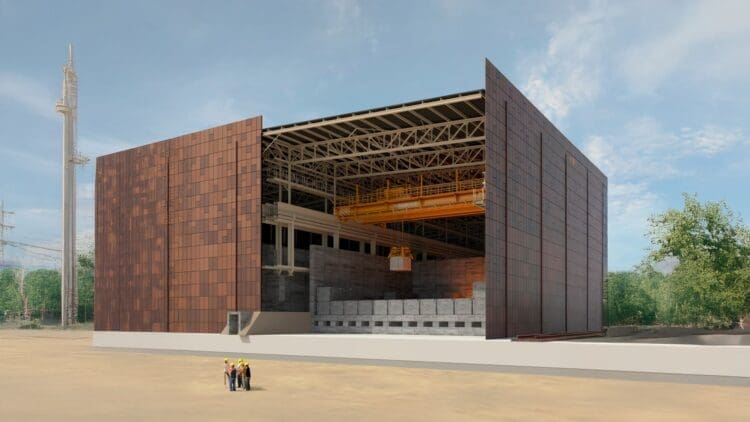The European nation of Belgium has announced that it will build a new facility at Dessel to store and monitor the low and intermediate-waste that the country produces. The world has been consumed by the ever-increasing power demand, and as such has delivered several new forms of energy creation, along with the good old reliable nuclear sector. The inevitable result of all that new power generation is that low and intermediate levels of waste need to be stored and disposed of in a timely and, more crucially, safe manner.
The project is important that the Prime Minister laid the first foundation stone at the new facility in Dessel
The press were delighted to get pictures of Belgium’s Prime Minister, Bart De Wever, laying down the first of many foundation stones at the new facility in Dessel, which is located in the Antwerp municipality. This marked the start of construction at the surface disposal facility for low and intermediate-level, short-lived waste.
The new facility will be made up of several concrete bunkers that will house large concrete vaults. The short-lived low and intermediate-level waste will be encapsulated with mortar. Which we must admit might be the safest plan in the energy sector to date. Countries around the world have needed to construct safe and secure sites capable of disposing of the waste produced by the energy sector.
Nuclear power is one of the most important energy creation methods that Belgium has, and as such requires significant input from the relevant stakeholders to plan the safe disposal of the waste created. The Prime Minister gave his thoughts regarding the new facility in Dessel.
“Nuclear technology is one of the keys to a better future. That is why, after years of hesitation, this government has finally abandoned the nuclear phase-out. Reliable and affordable energy, medical advances, or industrial safety: for many important applications, nuclear technology is crucial. Our country enjoys a solid reputation in these areas. With this fantastic project, we are once again strengthening our pioneering role in the safe and collectively supported storage of nuclear waste.” – Belgium Prime Minister Bart De Wever
The new facility at Dessel will house all of Belgium’s radioactive waste from several sectors
What we must keep in mind is that radioactive waste is not limited to the nuclear sector. Hospitals and research institutes add to the radioactive waste produced in the country, along with the nuclear power plants that are so essential in meeting rising power demands. The decommissioning of nuclear sites also presents vast amounts of radioactive waste.
At the moment, the waste is managed by the national radioactive waste management agency, ONDRAF/NIRAS’s industrial subsidiary Belgoprocess. The director recently stated his approval of the planned construction of the site. Not to be left behind in the radioactive dust, the US has plans to restart a crucial nuclear site in the months to come.
“This is a unique moment for our country, one of which I am very proud. It took many years and a lot of effort on the part of our teams to meticulously prepare this disposal project. For example, the safety file is nearly 25,000 pages long, demonstrating in detail how we will guarantee safety for at least 300 years. Now it’s up to the contractors to start the work and up to us to monitor it.” – ONDRAF/NIRAS Director General Marc Demarche
Nuclear power remains an integral part of the energy generation efforts of several countries
The European nations need to ensure a safe method of nuclear generation that can be monitored and controlled for many years to come, and the new facility in Dessel will provide Belgium with the means to safely dispose of the radioactive waste produced by the energy sector. Along with the United States, South Africa has announced a massive nuclear project that will be coming online in the not-too-distant future. It would appear that nuclear power is here to stay following a stint on the sidelines for many years.





